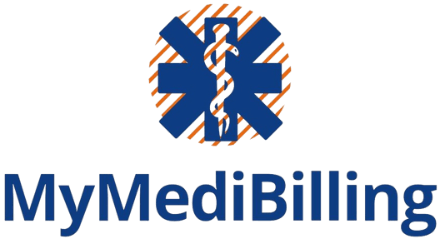Introduction
Medical billing practices is a crucial aspect of the healthcare industry, as it involves submitting and following up on claims with health insurance companies to receive payment for services rendered by healthcare providers. Staff needs to have a solid understanding of the basics of medical billing in order to carry out their responsibilities effectively. This includes knowledge of medical coding, insurance claim submission, and the various rules and regulations that govern the billing process.
One key component of medical billing is understanding the different types of insurance plans and how they impact the billing process. Staff should be familiar with the differences between private insurance, government-funded programs such as Medicare and Medicaid, and other types of coverage. Additionally, they should understand the importance of accurate and thorough documentation to support the claims being submitted.
Without a solid understanding of these basics, staff may struggle to effectively carry out their responsibilities which could potentially put the financial health of the healthcare organization at risk. Medical billing staff should also be well-versed in the various laws and regulations that govern the billing process, such as the Health Insurance Portability and Accountability Act (HIPAA) and the Affordable Care Act. These laws are in place to protect patient privacy and ensure that healthcare providers are billing for services fairly and ethically.
It is essential for staff to understand these regulations in order to avoid potential legal issues and to maintain compliance with industry standards. By having a strong foundation in the basics of medical billing, staff can ensure that they are carrying out their responsibilities in a way that is both effective and ethical.
Key Takeaways
- Understanding the basics of medical billing services is crucial for staff training
- Compliance in medical billing is important to avoid legal issues
- Effective communication with insurance companies is essential for successful billing
- Coding and documentation best practices are key for accurate billing
- Continuous training and education for staff is necessary to keep up with changes in medical billing and technology
Importance of Compliance in Medical Billing
Compliance is a critical aspect of medical billing, as it ensures that healthcare organizations are following all relevant laws and regulations in their billing practices. Failure to comply with these regulations can result in serious consequences, including fines, legal action, and damage to the organization’s reputation. Therefore, staff needs to be well-trained in compliance with best practices to avoid these potential pitfalls.
One of the key aspects of compliance in medical billing is ensuring that all claims are submitted accurately and in a timely manner. This includes verifying patient information, coding services correctly, and submitting claims within the required timeframes. Staff should also be aware of any specific requirements or guidelines set forth by individual insurance companies, as failure to adhere to these requirements can result in claim denials or delays in payment.
Another important aspect of compliance is maintaining patient privacy and confidentiality. Staff should be well-versed in HIPAA regulations and understand the importance of protecting patient information at all times. This includes ensuring that electronic health records are secure, only sharing patient information with authorized individuals, and obtaining patient consent when necessary.
Effective Communication with Insurance Companies
Effective communication with insurance companies is essential for successful medical billing practices. Staff should be trained in how to effectively communicate with insurance companies to resolve claim issues, obtain authorizations for services, and follow up on outstanding payments. This includes understanding the various methods of communication available, such as phone calls, emails, and online portals, and knowing when to use each method.
When communicating with insurance companies, staff needs to be clear and concise in their communications. This includes providing all necessary information upfront, asking clarifying questions when needed, and following up on any outstanding issues promptly. By being proactive and thorough in their communications, staff can help to ensure that claims are processed efficiently and that payments are received promptly.
In addition to effective communication, staff should also be trained in how to effectively negotiate with insurance companies when necessary. This may include appealing claim denials, negotiating payment rates, or resolving any other issues that may arise during the billing process. By having strong negotiation skills, staff can help maximize the organization’s revenue and ensure that they are receiving fair compensation for the services provided.
Coding and Documentation Best Practices
| Training Topic | Training Method | Training Frequency |
|---|---|---|
| Medical Billing Basics | Online Modules | Quarterly |
| Coding Guidelines | In-person Workshops | Bi-annually |
| Claim Submission Process | On-the-job Training | Ongoing |
| Denial Management | Case Studies | As needed |
Accurate coding and documentation are essential for successful medical billing practices. Staff should be well-trained in properly coding services using the appropriate code sets, such as ICD-10-CM for diagnoses and CPT/HCPCS for procedures. This includes understanding the specific guidelines for each code set and knowing how to apply them accurately to different types of services.
In addition to accurate coding, thorough documentation is also crucial for successful medical billing. Staff should be trained in how to properly document patient encounters in a way that supports the services being billed. This includes recording all relevant information, such as patient history, exam findings, and treatment plans, in a clear and organized manner.
By having strong documentation practices, staff can help to ensure that claims are supported by the necessary evidence and are less likely to be denied by insurance companies. Another important aspect of coding and documentation best practices is staying up-to-date on any changes or updates to code sets or documentation requirements. This may include attending regular training sessions or continuing education courses to stay current with industry standards.
Handling Patient Billing and Collections

In addition to working with insurance companies, staff should also be well-trained in how to effectively handle patient billing and collections. This includes understanding how to explain patient financial responsibilities, setting up payment plans when necessary, and following up on any outstanding balances. By having strong skills in patient billing and collections, staff can help to ensure that the organization is receiving fair compensation for services rendered.
One important aspect of handling patient billing is effectively communicating with patients about their financial responsibilities. Staff should be trained in how to explain insurance coverage, deductibles, co-pays, and any other out-of-pocket expenses that patients may be responsible for. This includes being able to answer any questions or concerns that patients may have about their bills in a clear and empathetic manner.
In addition to effective communication, staff should also be trained in how to set up payment plans for patients who may have difficulty paying their bills in full. This may include understanding how to negotiate payment terms, setting up automatic payment options, or referring patients to financial assistance programs when necessary. By being proactive in setting up payment plans, staff can help to ensure that patients can fulfill their financial obligations while also maintaining positive relationships with the organization.
Utilizing Technology in Medical Billing
Technology plays a crucial role in modern medical billing practices, as it can help to streamline processes, improve accuracy, and increase efficiency. Staff should be well-trained in how to effectively utilize technology in their billing practices to maximize its benefits. This may include understanding how to use electronic health record systems, practice management software, and other tools that can help to automate various aspects of the billing process.
One important aspect of utilizing technology in medical billing is understanding how to use electronic health record systems effectively. This includes knowing how to input patient information accurately, document encounters thoroughly, and access relevant information when needed. By having strong skills in using electronic health record systems, staff can help to ensure that all necessary information is readily available for billing purposes.
In addition to electronic health record systems, staff should also be trained in how to use practice management software effectively. This may include understanding how to submit claims electronically, track claim statuses, and generate reports on billing performance. By having strong skills in using practice management software, staff can help streamline the billing process and identify any areas for improvement.
Continuous Training and Education for Staff in Medical Billing
Continuous training and education are essential for staff working in medical billing practices, as it helps them stay current with industry standards and best practices. This may include attending regular training sessions, participating in continuing education courses, or obtaining relevant certifications in medical billing. By investing in continuous training and education for staff, organizations can help to ensure that their employees have the knowledge and skills needed to carry out their responsibilities effectively.
One important aspect of continuous training and education is staying informed about any changes or updates to laws and regulations that govern medical billing practices. This may include understanding any new requirements set forth by government-funded programs such as Medicare or Medicaid, as well as staying informed about any changes to industry standards or best practices. By staying informed about these changes, staff can ensure that they are consistently applying the most accurate and up-to-date information to their billing practices.
In addition to staying informed about changes in laws and regulations, continuous training and education can also help staff stay current with changes in technology or industry trends that may impact their billing practices. This may include understanding how new technologies can improve efficiency or accuracy in billing processes, as well as staying informed about any new trends or developments within the healthcare industry. By staying current with these changes, staff can help to ensure that they are consistently applying the most effective methods to their billing practices.
Conclusion
Training staff on medical billing practices is essential for ensuring that they have the knowledge and skills needed to carry out their responsibilities effectively. By providing comprehensive training on the basics of medical billing, compliance best practices, effective communication with insurance companies, coding, and documentation best practices, handling patient billing and collections, utilizing technology in medical billing, and continuous training and education for staff, organizations can help to ensure that their employees are well-prepared to navigate the complexities of medical billing practices. With a strong foundation in these areas, staff can help maximize revenue for healthcare organizations while also maintaining compliance with industry standards and providing high-quality care for patients.

